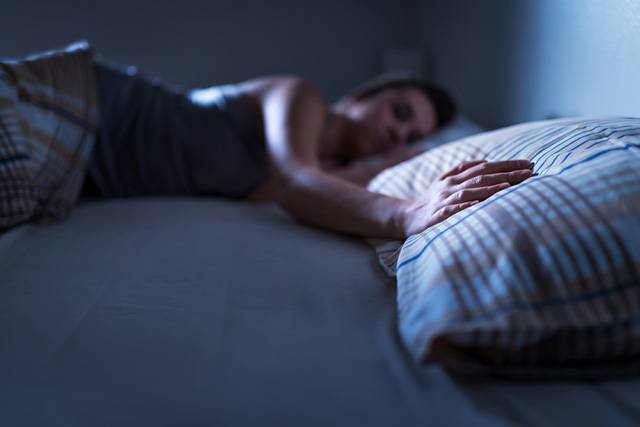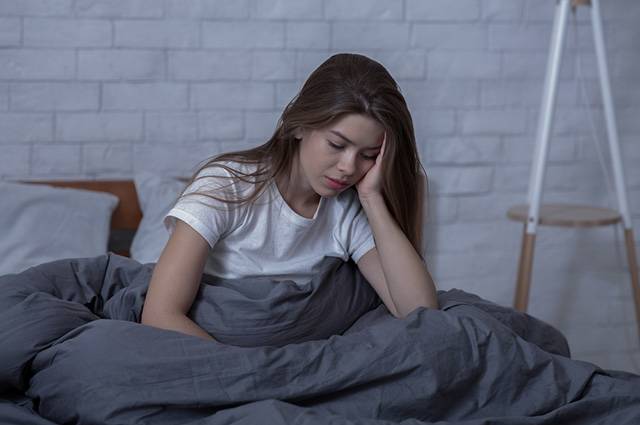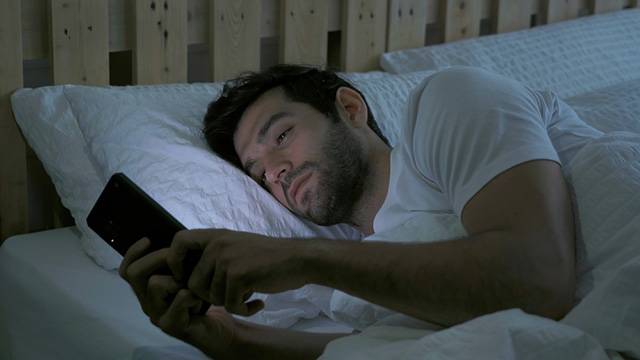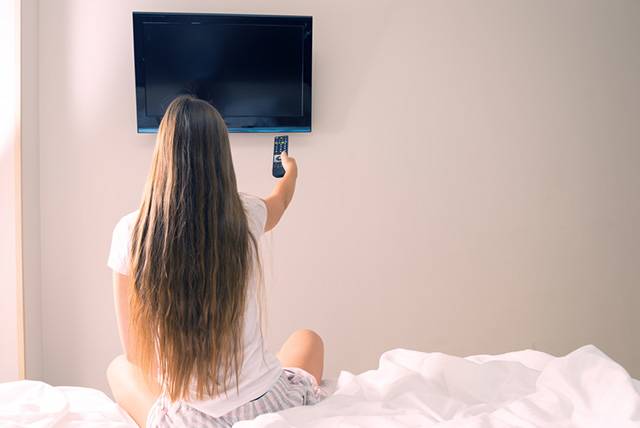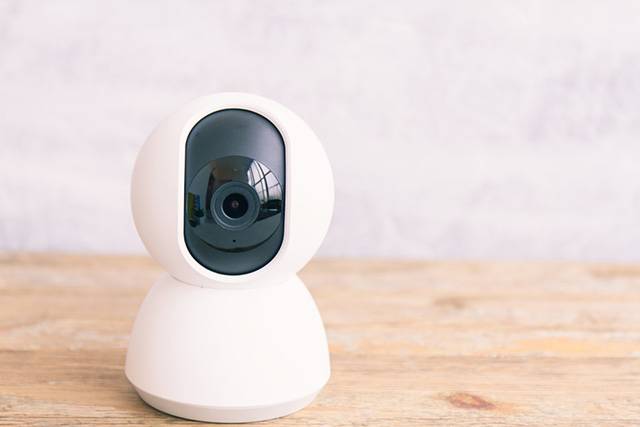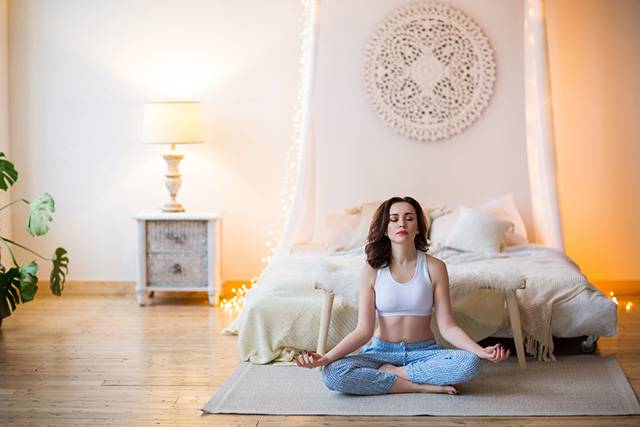The conditions you are used to sleeping in can have an immense impact on how well or poorly you sleep. If you’re used to the city night buzz, then sleeping in total silence may be unnerving. Being used to some sort of light through the windows, you’ll never be able to sleep in darkness.
The same goes for sleeping alone. If you’re used to company or sleeping with someone, then transitioning to sleeping alone may be extremely difficult for you. There are different reasons behind why you can’t sleep on your own, but the bottom line is this isn’t good for your overall health.
First, we’ll understand the reasons behind sleeping alone being an issue, then we’ll go through tips you can use to help yourself adjust to sleeping by yourself.
Reasons Behind Trouble Sleeping Alone
The reasons behind why you can’t sleep could have been developed overtime or instilled in your mind from a very young age. How you were comfortable sleeping at a younger age will carry on into your adult life, and if company was a norm, then sleeping alone may not be within your comfort zone.
— Safety
For many people, one of the main reasons why it’s so daunting to sleep alone is the lack of security. Being the only one at home, or even in your room can trigger internal paranoia.
Behaviours that don’t help in this fear are violent and horrific movies and shows, crime television shows, and news reports of tragedies right before bed. Hearing about a crime happening can severely affect your perspective of safety in your neighborhood. Some people may even have undergone a traumatic experience at night which alters their thinking permanently, so there is reasoning behind the fear of your safety at night.
— First Time Experience
This could perhaps be your first time sleeping alone, which could make you nervous. When undergoing your first days having moved out, or the first few nights of a vacation or trip in a new place, you won’t feel at home and that can interrupt your rest. This is called the First Night Effect, which fades once you get used to your surroundings.
— Sleep Disorders
Some people suffer from sleep disorders and phobias which only elevate at night, and when they’re alone. Anxiety and panic disorders are the most common which act up when you’re sleeping alone. There is also insomnia, which has a stronger effect when no one is around to help you.
There are also a few people who suffer from somniphobia, an extreme level of anxiety when sleeping. They have the fear of something bad happening when they’re asleep which evidently keeps them from falling asleep, especially alone. Bad dreams or something dangerous happening when they’re out cold makes sleep seem too risky.
— Losing Your Sleep Partner
Finally, there are those who have lost their sleeping partner. This could be due to a severe break-up or your loved one passing away. After being used to sleeping with someone, it can be very hard to return from their constant company to a place of comfort. For most people, their absence at night amplifies the impact of them being gone, which makes loneliness hard to conquer.
Sleeping with someone releases a hormone called oxytocin, which is a type of happiness hormone that helps lower blood pressure and relieve stressful hormones such as cortisol. You have improved mental and physical health, along with a better and positive mood. Falling apart from all these benefits isn’t easy, which is why sleeping all on your own becomes intimidating.
Tips to Help You Sleep Better
Fortunately, there are ways you can beat the fear of sleeping on your own, and most techniques don’t require additional help. A little effort and commitment and you’ll be sleeping peacefully in no time, company or not.
If you need help committing, then it’s smart to ask a family member or friend to check up on you every once in a while. You can tell them about your progress and issues, getting tips and advice from them as well reminders to stay on track.
Tip 1. Sleep with a Pet
If losing your companion is what’s keeping you up at night, then perhaps it’s time to invite a new companion to bed. Pets are loving and always want to be near you. Closeness is something your pet will never refuse. Just be sure your pet isn’t too small such as a bird or rabbit, since you could risk rolling over them.
Sleeping with any presence near you reduces stress and can help increase your level of security. Animals can be woken up easier than people, so it’s an extra precautionary measure having them sleeping closer to you. Another benefit both of you will love is the strengthened emotional bond from sleeping with one another. Having a big, warm, and fluffy companion can make sleeping easier for you, and your pet feels the extra love from you.
Tip 2: Restrict Your TV Time Before Bed
TV doesn’t usually have wholesome content to share with you before bedtime, so it’s better to avoid watching anything before you go to bed. There is also the issue of electronics emitting blue light, which deceives your mind into believing it’s daytime rather than night.
Phones, tablets, computer screens, and televisions should all be turned off an hour before you go to bed, giving your mind enough time to adjust to the nighttime atmosphere and get ready to sleep.
Tip 3: Invest in Security
Obviously, the best way to tackle a lack of security is by investing in better security measures. The more you do for yourself to feel safer, the more in control you’ll feel over your surroundings. So, a little shopping for better, long-term sleep benefits is a great idea.
Cameras in and around your home, smart locks on your doors, a security system, and active alarms for all precautions (smoke alarms, carbon monoxide alarms, breach alarms) are all good points to start building security in your home.
It’s also wise to develop a routine check of all your locks, alarms, windows, and cameras to check everything is closed and working properly.
Tip 4: Positive State of Mind
We’ve all been there. You climb into bed, tuck yourself in, and close your eyes only to have your brain play out a sketch of all your most embarrassing experiences and negative thoughts. These thoughts are hard to sleep on, and evidently keep you tossing and turning for hours at length.
The best way to conquer this is by forcefully pushing positive thoughts to the front of your mind. Meditation and deep breathing exercises can help you clear out your mind, making it the perfect canvas for happier thoughts. Loving memories, your favourite people, places, and things to do, think about all these things. Recollect the day, plan out the next one, commit to a brief workout, whatever helps you tire your mind out to a state of slumber.
Call someone before you go to sleep for some comforting words or talk out loud to your pets. You’ll find they’re admirable listeners. If you’re uncomfortable talking out loud, then keep a journal handy to jot down worries, fears, and anxieties, removing them from your mind.
Tip 5: Make Your Bedroom More Welcoming
Your bedroom should be the ideal sleeping environment, personalized and welcoming. You should feel most comfortable in your room, so do whatever it takes to reach that goal.
To make your nighttime routine more desirable, save all your favorite activities for the end of the day. You can read, sketch, listen to music or podcasts, write, color, and more in bed until tiredness catches up to you.
You can also implement calming rituals into your bedtime schedule. Take a calming bath before you sleep or use aromatherapy to soothe your senses. If outer factors keep you up, then use blackout curtains and white noise machines to create pacifying ambiance in your room.
Change the bedding or set-up of your room for a more open and appealing setting. More decorations and colors in your room can help make it a desirable place to be.
Tip 6: Consult a Therapist
If nothing works for you, you still can’t sleep on your own, then perhaps it’s time to consult a sleep expert or therapist. They can help you uncover the underlying issues and create a game-plan to overcome them.
It could be deep-rooted grief, phobias, anxiety, or paranoia that needs to properly be addressed. Not everyone can come face-to-face with insecurities or trauma, so a therapist can hold your hand along the journey to self-recovery and make sleeping alone the realistic experience it really is. In the end, there is no strong enough reason to affect your sleep long-term since it’s only detrimental for you and no one else.
The fact is that everyone will have to sleep on their own once in a while. It shouldn’t be something to be afraid of, and there are ways to accustom yourself to sleeping in your own bed without another person nearby. A little practice, and you’ll be snoring to your heart’s content with no one in earshot.
Photo credit: DiMedia/Shutterstock; Tero Vesalainen/Shutterstock;
Prostock-studio/Shutterstock; ruigsantos/Shutterstock;
Tavarius/Shutterstock; tommaso79/Shutterstock;
mdbildes/Shutterstock; Phish Photography/Shutterstock;
Dasha Petrenko/Shutterstock; ORION PRODUCTION/Shutterstock;
Daxiao Productions/Shutterstock; VK Studio/Shutterstock;
YAKOBCHUK VIACHESLAV/Shutterstock
